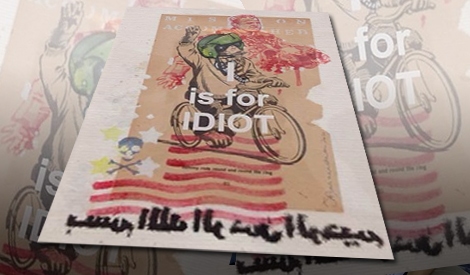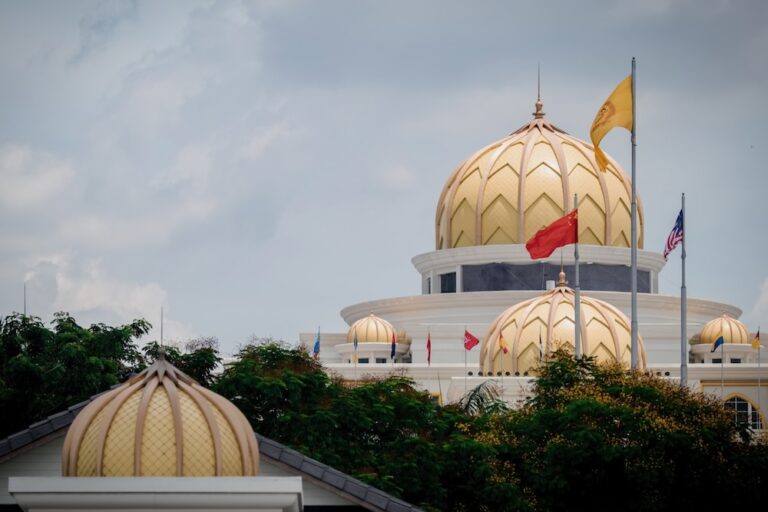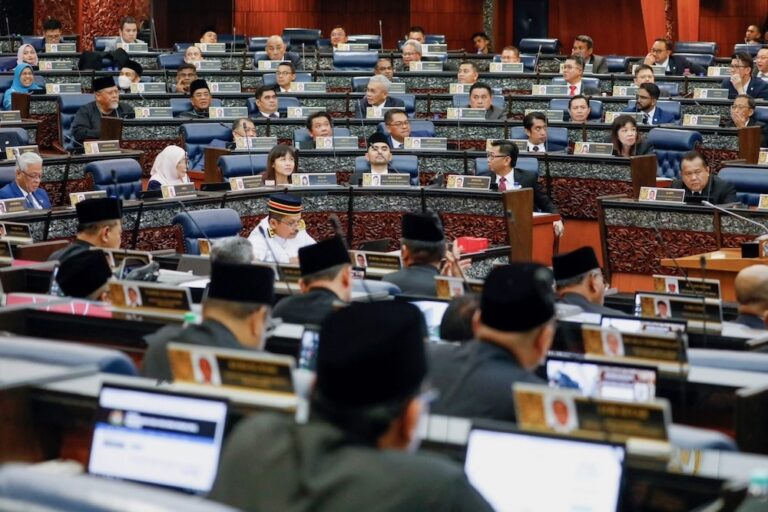The Royal Malaysian Police seized a painting by artist Anu J referring to the Iraq war for allegedly representing an insult to Islam.
In a September 2, 2013 statement, the Centre for Independent Journalism (CIJ) condemned the Royal Malaysian Police’s seizure of artwork belonging to painter Anurendra Jegadeva (better known as Anu J), from the M50 Malaysia Day art exhibition on August 29.
The seizure amounts to censorship against artistic freedom and is a blatant violation of human rights and freedom of expression. Anu J’s artwork was part of the M50 Malaysia Day art exhibition which was jointly supported by the Tourism and Culture Ministry. Minister Nazri Aziz however withdrew the endorsement on August 31, citing the said work as “offensive” and stating that a committee within the Ministry did not see the particular piece when it vetted through works in the exhibition, which it is supporting. The exhibition also featured other paintings by the same artist, one of which is a huge portrait of former Prime Minister Mahathir Mohamad with Flyingman matchboxes signposting pivotal moments in Dr M’s tenure with words such as “Lallang” and “Sodomy”.
Anu J’s painting which was seized was alleged to represent an insult to Islam, after a police report lodged by Muslim NGO coalition Muafakat. The painting displays text that reads ‘I is for Idiot’ while portraying a chimpanzee riding a bicycle in a helmet and a jacket with a military pilot in the background alongside the words, ‘Mission Accomplished’. The artwork also featured a flag with red and white stripes, skull, crossbones, stars and Arabic words that are commonly used in Islamic prayers. Anu J has clarified that all of the above were creative references to the Iraq war waged by the United States of America. The artist affirmed that the phrase ‘I is for Idiot’ is in reference to George W. Bush, the former president of the US who initiated the war against Iraq. ‘Mission Accomplished’ and the military pilot seen in the artwork depicts the moment that the US successfully landed its fighter jet in Iraq in 2003. The Arabic words in the artwork are said to represent the identity of the Iraqi people.
The seizure of Anu J’s artwork was not the first instance of an attack against artistic expression.
Prior to this, landscape artist Ng Sek San’s artworks were rejected from the same exhibition without having even been viewed. The rejection may be politically motivated as Sek San was also the brainchild behind the Malaysian Spring street art campaign in the build-up to the 13th General Elections, a campaign that was later adopted by politicians affiliated to Pakatan Rakyat, Malaysia’s Opposition coalition.
CIJ also views the ambivalence of the Penang State Government’s attitude towards the film Tanda Putera with much worry. While Chief Minister Lim Guan Eng said that he merely “advised” against the film’s screening, it is evident that the initial letter from the legal advisor had “directed” cinemas in the state against screening the film.
CIJ is also concerned with the impact of the withdrawal of the Culture and Tourism Ministry’s endorsement on artistic freedom. While the ministry did not ban the exhibition itself, the chilling effect is that galleries and malls may be more careful in supporting art in public places which can be interpreted as offensive to Islam or those which make overt references to national or international politics.
CIJ called on the authorities to immediately stop this disgraceful harassment on artists and immature clampdown of freedom of expression.



